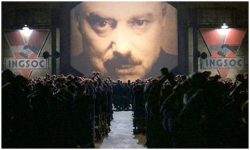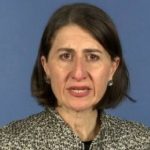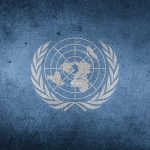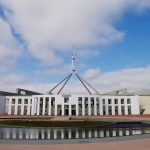NSW Government Passes Thought-Crime Laws

The NSW upper house has passed a bill which will allow the Attorney General to apply to keep an inmate behind bars beyond the completion of their entire sentence if he thinks they may commit a terrorism-related offence sometime in the future, even if they have never committed or even been suspected of engaging in such as offence before.
The Terrorism (High-Risk Offenders) Bill 2017 – which was introduced to parliament by NSW Attorney General Mark Speakman – gives him the power to make rolling applications to the Supreme Court to extend an inmate’s sentence for up to 3 years at a time, up to the end of their life, regardless of what they were originally sentenced for.
Inmates likely affected
There is little doubt the laws will likely be used against Islamic inmates considered to have been ‘radicalised’ behind bars, and as a political tool to keep these ‘undesirable’ people imprisoned.
The inmate would undergo a ‘rehabilitation review’ during their sentence, followed by a medical assessment. A recommendation would then be made to the Attorney General who would decide whether to make an application for extended detention.
Government rhetoric
Nationals MP Trevor Khan is highly supportive of the new laws, stating:
“Yeah, these are compromises that we are making but if we are to keep the people of Australia, the people of NSW safe, then compromises we make.”
The Attorney General said he made “no apologies” for his new powers, adding:
“There’s no doubt that laws to keep offenders behind bars after they’ve completed sentences are tough laws”.
Accusations of hypocrisy
Many are surprised by Mr Speakman’s rhetoric and actions, given he has previously spoken out against political involvement in the judicial process.
In June this year, the Attorney General argued that politicians should not usurp the role of judges in deciding when an inmate should be released from prison.
“Politicians should not be involved in individual decisions about the liberty of prisoners,” Mr Speakman declared.
“You have got a separate judicial system that decides who goes to gaol, who is guilty, what the penalties are, independent parole authorities so that politicians are not there making political decisions but well-informed independent members of the judiciary.”
A political tool
The NSW Council for Civil Liberties (NSWCCL) sees the new laws as a further curtailing of civil liberties, an encroachment on the judicial system and the rule of law, and an instrument of further government control.
According to NSWCCL President Stephen Blanks,
“It can only be [a] political [measure]… It’s just an abuse of what the courts are there for, which is to find truth.”
“This is a regime which will result in the continued detention of people simply for what they say or think… It’s fundamentally contrary to the idea of a free society”.
Imprisoning people for possible future crimes
NSW Bar Association President Arthur Moses said he was opposed to legislation which keeps people imprisoned based upon “speculation”.
“The way to keep the community safe is not to take away the rights of people but to provide police with proper resources to properly investigate matters, charge suspects and bring people before the courts to be dealt with according to law,” he remarked.
Greens MP David Shoebridge was of the same view, stating:
“You go to jail if you are planning to commit or committed a crime and are found guilty by a court – not because authorities fear you will in the future”.
Last year, NSW Supreme Court Chief Justice Tom Bathurst counted 397 encroachments on laws which protect three legal safeguards alone – the presumption of innocence, the right against self-incrimination and client legal privilege.
The judge remarked that legal protections are being taken away gradually yet systematically, thereby increasing state control and leaving individuals vulnerable to the interests of the government of the day.
It seems the new ‘extended detention’ laws are yet another step in the process of ‘boiling the frog’ – of slowly but surely taking away our legal safeguards and protections – often in the name of a perceived terrorism threat – until there are few left.







